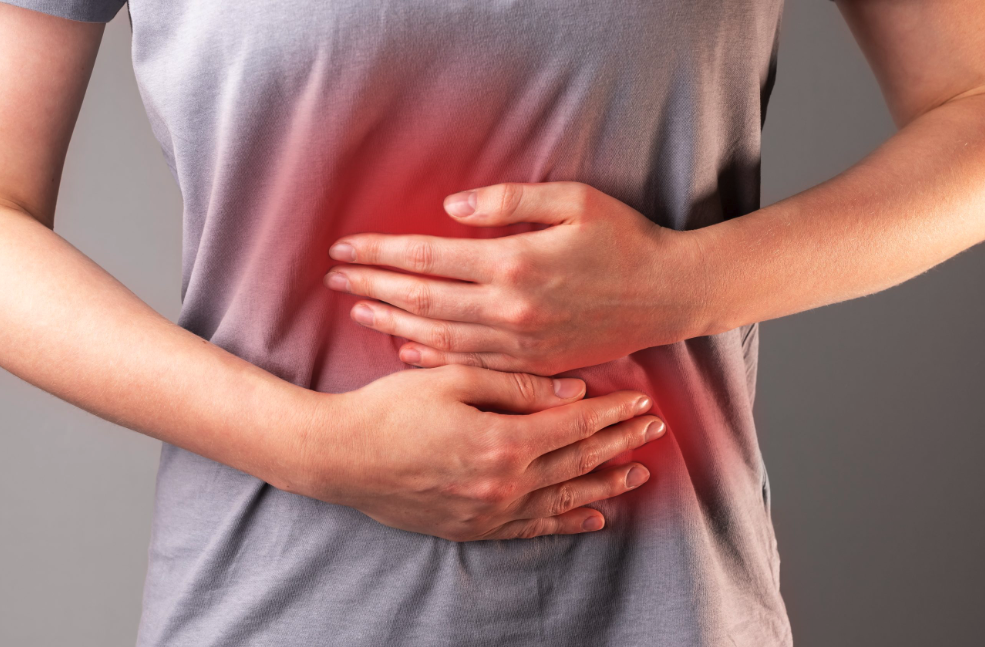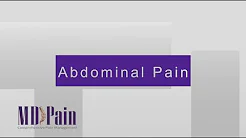Denver Abdominal Pain Treatment
Abdominal pain can be very difficult to diagnose and, therefore, treat. Abdominal pain, such as pelvic pain, can vary in sensation and intensity. It can be sharp, dull, aching, cramping, localized or diffuse. It can be exacerbated or eased by activity, or remain consistent despite any home interventions that are attempted.
Complicating the diagnosing and treatment of pelvic pain is the number of organs that can cause abdominal pain. The urinary tract, reproductive organs, bowels, liver, gallbladder, and pancreas are all potential causes of abdominal pain. Symptoms that can be experienced include gas, bloating, indigestion and heartburn, diarrhea, cramping, constipation, or pain and tenderness.
Treating abdominal pain requires skilled, experienced, and knowledgeable physicians who understand the intricacies of abdominal pain along with the best methods available to treat it. After identifying the cause through diagnostic tools such as X-ray, CT scans, or MRI, for example, the underlying cause of pain must be addressed. This can range from inflammation, scar tissue, or lifestyle.
Fortunately, there are options to treat or block the pain signal from such types of pain. If you or a loved one is experiencing chronic or nagging abdominal pain which is impacting the quality of your life, please call Metro Denver Sport, Spine, and Pain Management (MD Pain) for evaluation and treatment options.
Understanding Abdominal Pain and Its Causes
Abdominal pain in the Denver area can range from mild tummy ache to severe abdominal pain that impacts daily life. Chronic abdominal pain may stem from a variety of internal organs within the gastrointestinal tract, including the stomach, small intestine, liver, pancreas, and bowels. Severe pain often requires immediate medical care, particularly if it is accompanied by other symptoms such as fever, vomiting, or bloody stools. At MD Pain, our experienced physicians perform a thorough evaluation to identify the underlying cause and provide targeted relief.
Abdominal discomfort may also result from conditions like gastroesophageal reflux disease, Crohn's disease, or kidney stones. Patients often report pain that is intermittent or constant, and it may worsen after eating certain foods or during daily activity. Understanding the patient’s bowel habits, medical history, and lifestyle is critical to forming an effective treatment plan.

Common Symptoms of Severe Abdominal Pain
Severe abdominal pain may present with a variety of symptoms that go beyond a simple stomach ache. Some of the most frequent signs include:
- Nausea and vomiting
- Diarrhea or constipation
- Bloating or gas
- Fever or chills
- Bloody stools or unusual discharge
- Discomfort radiating to the back or chest
These symptoms signal that the gastrointestinal tract may be compromised, and they require a thorough evaluation by MD Pain to ensure an accurate diagnosis and timely medical care.
Contact Us
Diagnostic Tests for Targeted Relief
For chronic or severe abdominal pain, MD Pain uses a combination of diagnostic tests to determine the source of discomfort. These tests may include:
- Physical exam and patient history review
- Blood and urine tests
- Imaging studies like X-rays, CT scans, or ultrasounds
- Endoscopic ultrasound for small intestine or upper GI tract evaluation
Accurate diagnosis is essential to provide targeted relief. By pinpointing the root cause of stomach pain or abdominal discomfort, our team can develop personalized treatment approaches that are safe, effective, and tailored to each patient’s needs.
Treatment Approaches for Abdominal Pain
Treatment for abdominal pain depends on the underlying disorder. Options may include medications to reduce inflammation or acid reflux, dietary modifications, or specialized procedures for severe pain conditions. MD Pain focuses on providing targeted relief for patients by combining advanced techniques with years of trusted experience in the Denver and Colorado Springs area.
For some patients, lifestyle adjustments like changes in diet, hydration, and activity levels can alleviate persistent discomfort. Others may require more advanced intervention, such as procedures to address Crohn’s disease, gastrointestinal tract obstructions, or kidney stones. Our goal is always to improve quality of life and reduce pain while addressing the root cause.
If you are struggling with abdominal pain, MD Pain in Denver and Colorado Springs is ready to provide accurate diagnosis and effective relief that improves your quality of life.
Abdominal Pain Q & A
Pain in the abdominal area is often associated with the organs located there, including your stomach, intestines, liver, gallbladder, and pancreas, among others.
In addition to this pain, which may be dull, achy, or sharp, you may experience additional abdominal pain symptoms like:
- Bloating
- Constipation
- Diarrhea
- Gas and indigestion
- Cramping
- Heartburn
- Tenderness
- Abdominal pain can also manifest as chest pain. In some cases, this chest pain can be significant.
Abdominal pain results from a range of issues, the most common of which include problems like:
- Inflammation of an organ (like appendicitis, colitis, or diverticulitis)
- Distention of an organ (such as intestine obstructions or bile duct blockages)
- Loss of blood to an organ (like with ischemic colitis)
- Irritable bowel syndrome (IBS) and other bowel issues
- Infections (such as urinary tract infections or kidney infections)
- Abdominal pain can also result from dehydration, stomach viruses, and abnormal growths.
Before your doctor at Metro Denver Pain Management (MD Pain) can treat your abdominal pain, he must find its underlying cause. To determine why you’re in pain, he performs a thorough physical examination and asks you questions about your symptoms, including when they occur and what, if anything, has helped to relieve your pain.
Your doctor may also order testing to either rule out or confirm certain problems. Depending on your specific case, he may recommend blood tests, urine tests, or a barium swallow. In other cases, imaging tests may be necessary to find the right diagnosis, and your doctor may request an X-ray, ultrasound, or CT scan. Sometimes an exploratory endoscopy confirms the problem.
Once the issue is known, your doctor may use medications to relieve inflammation or suggest lifestyle changes, such as cutting spicy foods, alcohol, or caffeine from your diet. You may need surgery to remove polyps or gallstones or correct the functioning of one of your organs.
In some cases, you may need to have an organ removed. This is most often when abdominal pain results from issues with your appendix, gallbladder, or pancreas.
Patients should seek immediate medical care if abdominal pain is severe, persistent, or accompanied by fever, vomiting, bloody stools, or significant discomfort. At MD Pain, our team prioritizes urgent cases to ensure accurate diagnosis and effective treatment approaches for all patients.
Yes, abdominal pain may radiate to the back, chest, or lower extremities depending on the affected organ. MD Pain evaluates the full scope of symptoms and provides treatment approaches that address both local and systemic discomfort.
For ongoing stomach pain, MD Pain combines patient history, physical exams, and diagnostic tests to uncover the cause. Our physicians develop a comprehensive treatment plan to provide targeted relief, manage other symptoms, and support long-term digestive health.






